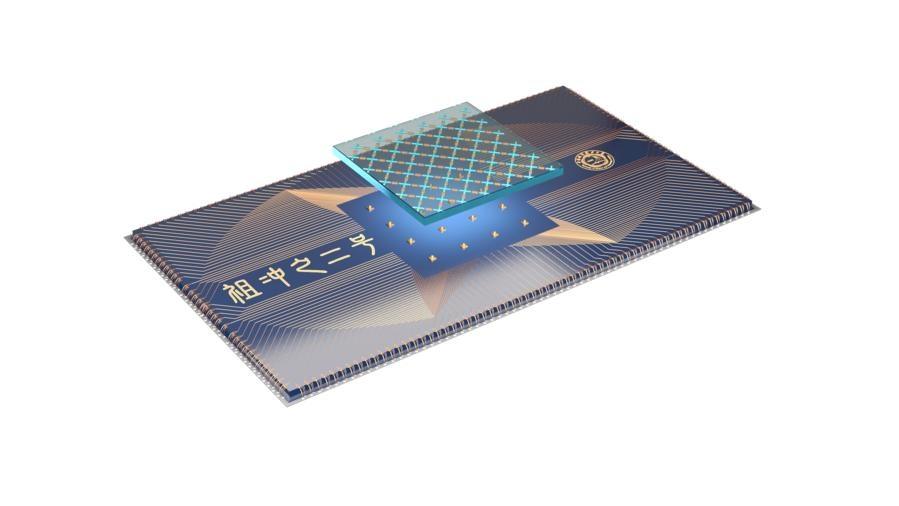China achieves quantum computational advantage in two mainstream technical routes

Photo provided by the research team led by Pan Jianwei on Oct. 26, 2021 shows the quantum processor of "Zuchongzhi 2.1." (The research team led by Pan Jianwei/Handout via Xinhua)
HEFEI, Oct. 26 (Xinhua) -- A Chinese research team has successfully designed a 66-qubit programmable superconducting quantum computing system named "Zuchongzhi 2.1," significantly enhancing the quantum computational advantage.
This remarkable feat makes China the first country to achieve a quantum computational advantage in two mainstream technical routes -- one via photonics quantum computing technology and the other via superconducting quantum computing technology, the team noted.
The study was led by renowned Chinese quantum physicist Pan Jianwei and was published online on Monday Beijing Time in the journal Physical Review Letters and Science Bulletin.
In December 2020, the researchers built the quantum computer prototype, "Jiuzhang," through which up to 76 photons were detected, achieving quantum computational advantage.
Quantum computational advantage, also known as "quantum supremacy," indicates an overwhelming quantum computational speedup that is currently infeasible for traditional computers.
Gaussian boson sampling (GBS) based on photons and random quantum circuits sampling based on superconducting qubits are two major technical schemes to demonstrate a quantum computational advantage in experiments.
In May this year, the researchers designed a 62-qubit programmable superconducting quantum processor named "Zuchongzhi," achieving two-dimensional programmable quantum walks on the system.
The quantum computing system of "Jiuzhang" can carry out large-scale GBS 100 trillion times faster than the world's fastest existing supercomputer. Meanwhile, with an improved average readout fidelity of 97.74 percent, "Zuchongzhi 2.1" can perform large-scale random quantum circuits sampling about 10 million times faster than the fastest existing supercomputer.
"This indicates that our research has entered its second stage to start realizing fault-tolerating quantum computing and near-term applications such as quantum machine learning and quantum chemistry," said Zhu Xiaobo, a member of the research team.
Photos
Related Stories
Copyright © 2021 People's Daily Online. All Rights Reserved.










